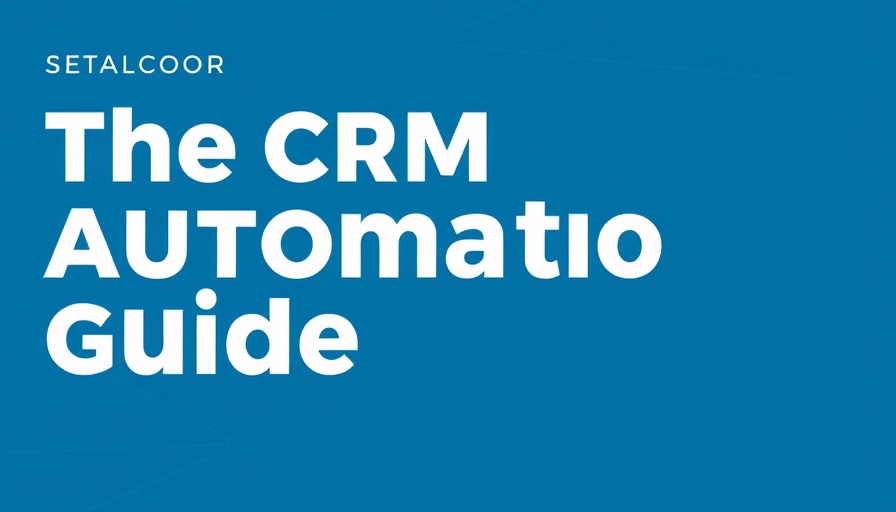
Understanding the Importance of CRM Automation for Marketing Professionals
In the rapidly evolving landscape of marketing, CRM automation emerges as a crucial tool for enhancing efficiency and effectiveness. As businesses aim to streamline their operations, leveraging automation techniques can lead to better customer management and personalized marketing approaches. This article explores the transformative role CRM automation plays in contemporary marketing strategies, inspired by insights gathered from various sources on automation trends.
Exploring CRM Automation: A Game Changer for Growth
CRM automation offers numerous advantages, primarily through targeted engagement with customers. For marketing professionals, automation tools can simplify tasks like customer segmentation and lead scoring, ensuring timely communication and improved customer experiences. This is increasingly vital as companies seek to adapt to shifting consumer preferences and digital communication trends.
Historical Context: The Evolution of CRM Systems
Understanding the genesis of CRM systems sheds light on their current capabilities. Initially designed for managing customer relationships through manual processes, the evolution of cloud technology allowed for more sophisticated automation features. Today's CRMs integrate artificial intelligence and machine learning to provide insights into customer behavior, taking predictive analytics to unprecedented levels.
Common Misconceptions about CRM Automation
Despite the widespread adoption of CRM systems, misconceptions abound. Some marketing professionals may believe that automation replaces human interaction. However, when leveraged correctly, automation enhances human relationships by providing staff with tools for more meaningful engagement. It frees up valuable time for marketing teams, allowing them to focus on strategic initiatives rather than repetitive tasks.
Actionable Insights: Steps to Implement CRM Automation Effectively
For those considering CRM automation, several best practices can be employed to achieve optimal results. First, prioritize your business objectives by aligning the CRM functionalities with your marketing goals. Secondly, invest time in training your team to maximize the potential of your chosen system. Lastly, conduct regular reviews of your automated processes to ensure continual alignment with your evolving marketing strategies.
Future Trends: What Lies Ahead for CRM Automation?
Looking ahead, the integration of advanced technologies like artificial intelligence and data analytics in CRM tools is expected to deepen. Marketing professionals should keep an eye on how these innovations can further enhance automation capabilities, ultimately leading to even more personalized customer experiences and refined marketing strategies.
As marketing professionals navigate the complexities of CRM automation, understanding its nuances and leveraging it strategically will be essential. Embracing this rapidly advancing technology could set businesses apart in an ever-competitive market.
 Add Row
Add Row  Add
Add 




Write A Comment